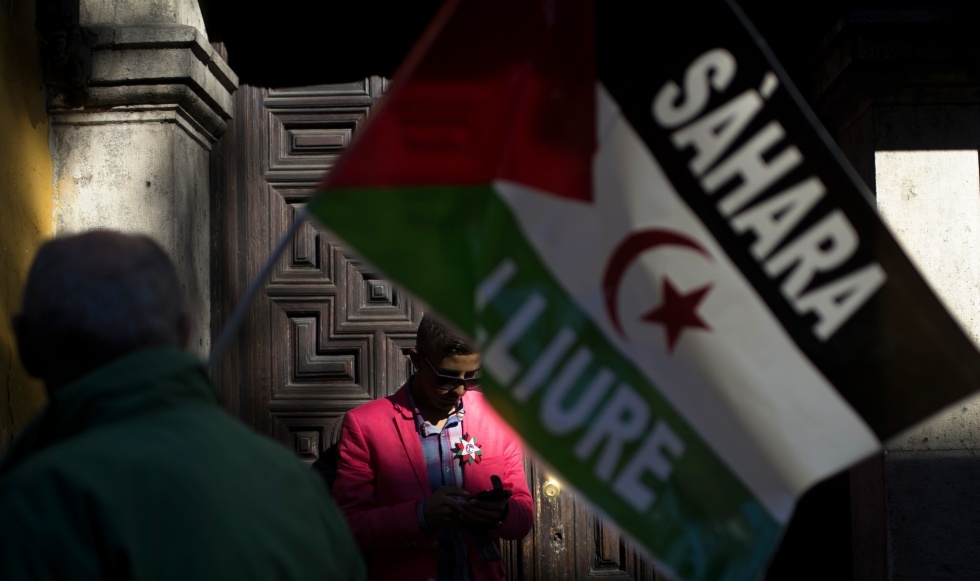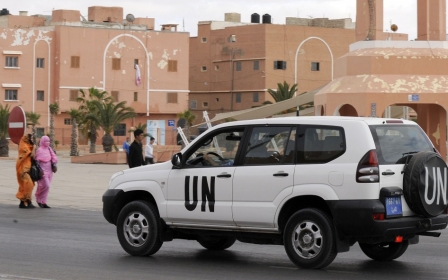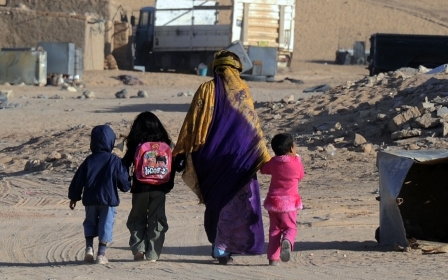Rights organisations urge greater monitoring in Western Sahara

Human Rights Watch on Monday urged the Security Council to task UN peacekeepers in Western Sahara with rights monitoring, accusing Morocco of suppressing dissent in the territory it controls.
The call, in a letter addressed to the Security Council, comes ahead of the annual vote next week on renewing the mandate of the peacekeeping mission, known as MINURSO.
It is a move fiercely opposed by Morocco, which annexed the former Spanish colony in the late 1970s in a move never recognised internationally.
On Saturday, King Mohamed VI warned Ban Ki-moon against "dangerous options" after the UN chief called for "sustained, independent and impartial" human rights monitoring in the disputed region and the refugee camps in western Algeria run by the pro-independence Polisario Front.
"Morocco has announced a series of human rights initiatives since 2011 that, while positive, have yet to change the basic human rights situation in Western Sahara," HRW said in its letter.
New MEE newsletter: Jerusalem Dispatch
Sign up to get the latest insights and analysis on Israel-Palestine, alongside Turkey Unpacked and other MEE newsletters
"That situation is characterised by Morocco's firm repression of all Sahrawis who express their opposition to Moroccan rule and who favour self-determination for the territory," said the rights watchdog.
It said its own monitoring of the human rights situation in Western Sahara, which included recent visits to the territory's two main cities and the Polisario-run camps, confirmed the need for sustained, independent and impartial monitoring as advocated by the UN chief.
"Existing rights-monitoring mechanisms fail to meet these criteria," said the New York-based group.
"Impartial UN monitoring makes it more difficult for parties to distort claims of human rights violations to promote their political agendas. It deters abuses and promotes accountability -- all essential to promoting stability and political settlements," it added.
Unlike UN peacekeeping forces elsewhere, MINURSO, which has monitored a ceasefire between Morocco and the Algeria-backed Polisario Front since 1991, is not charged with reporting on human rights, something rights activists and the Polisario have advocated for years.
Washington sought last year to enlarge the peacekeeping force's mandate, an unexpected move strongly opposed by Morocco, which controls most of the territory and is highly sensitive to criticism of its policies there.
The proposal was finally dropped after Rabat launched a shrill lobbying campaign.
Morocco has proposed wide autonomy for Western Sahara under its sovereignty, as a solution to the decades-old conflict.
This is rejected by the Polisario, which has campaigned for independence since 1973, and insists on the right of the Sahrawi people to determine their own future in a UN-monitored referendum.
The Euro-Mediterranean Human Rights Network, an organisation comprising 68 human rights organisations, denounced the continuing abuse of human rights in Western Sahara and called for “the prompt establishment of permanent international mechanisms for monitoring human rights in Western Sahara, and considers that the extension of MINURSO's competencies corresponds perfectly to the situation in the region and the nature of this mission” as well as urging the Moroccan authorities to cease their “repressive practices and to allow the registration and activities of civil society and human rights organisations in Western Sahara.”
Speaking in New York on Friday, Amnesty International's secretary general Salil Shetty condemned the lack of proper investigation into the abuses.
“In the absence of an independent, impartial, comprehensive and sustained human rights monitoring, parties are allowed to trade accusations of rights abuses which fuel the tension as violations go unaddressed."
“A continued clampdown has left human rights defenders powerless to effectively document rampant violations in Western Sahara. Maintaining a peacekeeping force with a limited mandate is no longer an option."
Middle East Eye delivers independent and unrivalled coverage and analysis of the Middle East, North Africa and beyond. To learn more about republishing this content and the associated fees, please fill out this form. More about MEE can be found here.



